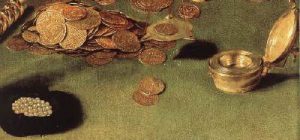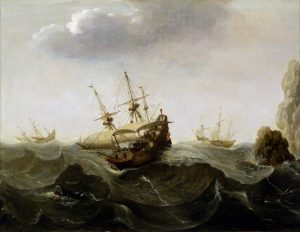Prisoners of Our Possessions
 We all want things for ourselves and our families. It is natural and right to want things like:
We all want things for ourselves and our families. It is natural and right to want things like:
- A clean, safe home that provides shelter from the elements;
- Safe, clean water to drink;
- Healthy, nutritious food to eat;
- Clean clothes, including clothes to keep us warm in cold weather.
That’s a fairly short list, even though many of us on this planet lack one or more of the items noted. After the above needs are met, what else do we need?
We need to try to stay healthy, and to try to keep our family members healthy. This would mean – in addition to things already listed – indoor plumbing, and maybe utilities like electricity, and certainly access to basic health care. Even more of us lack these items, including many in so-called “developed” nations.
We might need transportation. If we have a job we have to get to, then we need a way to get there. If going to school, then we need a way to get to school. We might also need transportation to get to a food store, or some other establishment, or to see friends or relatives. This need could be met by having access to public transportation, or by owning a bicycle, or a scooter, or even an automobile.
We might need ways of receiving and conveying information. Things like telephones, and computers, and books would fall into this category.
One could say, then, that the man or woman with a simple, clean little place to live, wearing simple practical clothes, drinking clean water and eating nutritious food, is a lucky man or woman. If he or she has basic utilities and access to health care, then he or she is luckier still. Give the person a bicycle or car, some books, a phone, and even a simple computer, and we could say that, in a very real sense, that person has everything a person needs.
It’s already been noted that many of the earth’s inhabitants lack one or more things on the list we’ve made. For instance, the number of people without access to safe water is currently 663 million. The number of people without access to decent sanitation is around 2.4 billion.
What about the other extreme, those who have far more than what’s on the list? If the ones who have everything on the list are lucky, then are the ones with much more than that luckier still?
No, they are not.
A ship without an anchor is an unfortunate ship to be on, but a ship with too many anchors aboard is also an unfortunate ship to be on. No sea captain in his right mind would carry more anchors than needed. Why, then, do you?

This isn’t an argument for strict utilitarianism. No one is saying that you shouldn’t be allowed to listen to music, or go see a movie, or dine out occasionally. You should also be able to travel, if you have the means. But how often do we see or hear of someone prevented from traveling because of his or her possessions? “I’d love to get away, but I’d have to get someone to watch the house, to mow the lawn, to move the car, to water the plants, to watch the pets, to . . .” The list goes on.
What about time itself? “I would love to work at a job I enjoy, or work at a job with less hours,” the businessman says. Then he drives away in an automobile that costs three times what a simple, smaller automobile would cost, and goes home to a house that costs three times what a simple, smaller home would cost. Does this man secretly pretend to himself that he is wealthy, and derive satisfaction from the idea? If so, he is mistaken.
“Wealth,” Epictetus tells us, “consists not in having great possessions, but in having few wants.”
Many of us think possessions make us happy. When they do not, our solution is to go get more possessions. Then at some point, if we live long enough, we look around and wonder why we ever acquired all these unneeded things and try to force them onto our heirs, pretending we are being generous while knowing in our hearts that we simply want to rid ourselves of the visible reminders of our lack of wisdom.
Where does the idea that possessions make a person happy come from? It comes from someone trying to sell you something. It’s there in every television commercial you watch and in every magazine or online advertisement you read. Turn off the sound or ignore the text of the ad, and this is what you will really find yourself being told: “Look at the happy people we’re showing you, people happier than you are. Look how attractive others find them. Why are they so happy and attractive? Because they bought this product. Wouldn’t you like to be that happy and attractive? Then you should buy this product.”
Try this experiment for a week: each time you see a commercial or read an advertisement, say to yourself (or out loud, if you are alone), “What foolishness! You’re just trying to sell me something I don’t need!” Then, at the end of the week, consider how few times – if any – you were wrong for saying what you did.
Milarepa recognized that unnecessary possessions not only fail to bring happiness, but actually incur three separate forms of unhappiness. “I have,” he said, “no desire for wealth or possessions, and so I have nothing. I do not experience the initial suffering of having to accumulate possessions, the intermediate suffering of having to guard and keep up possessions, nor the final suffering of losing the possessions.”
Today might not be the day that we become as wise as Milarepa, but it could be the day we start down the road toward such wisdom. It could be the day we stop accumulating what we do not need, and the day we start ridding ourselves of all the unnecessary possessions we already have. It’s entirely up to you.